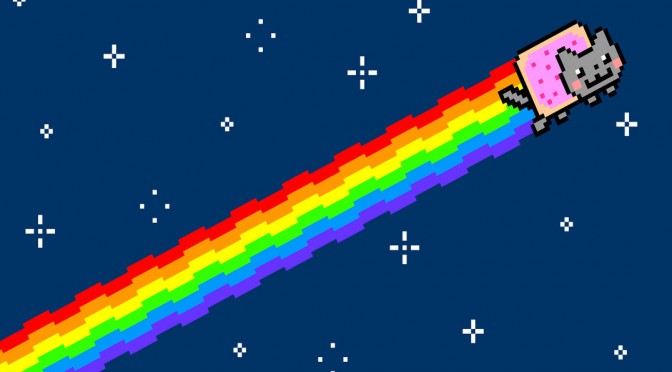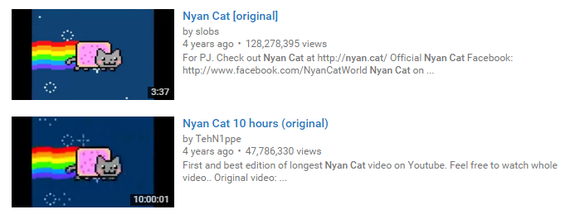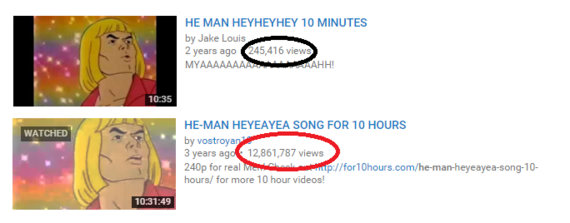As an April Fool’s joke in 2013, after eight years in existence, YouTube posted a video announcing that they would finally be choosing the ultimate winner of YouTube and that the fun was over. If only this has been for real (but think what we would have missed out on!).
So here we’re asking, from a critical philosophy point of view, what should really win? What is the best YouTube contribution, from a radical perspective? What is the most anti-capitalist thing to erupt out of the capitalist enjoyment system that is YouTube? I have an answer here, and I think I’ve got it right. (Please comment any alternative suggestions for the most radical YouTube video below).
In my book “Enjoying It: Candy Crush and Capitalism“, I tried as hard as possible to prove that within the most conformative and apparently ‘mindless’ kinds of enjoyment in our society we sometimes find radical moments that threaten to ruffle and unsettle our cultural order. This has always been one of Everyday Analysis’s main projects. Sometimes it is not arthouse cinema or highbrow political satire that makes the most disruptive and radical move, but video games, soap opera or reality TV. These things are of course not radical (on the whole), but within them and through our relationships to them, they can produce unsettling moments of enjoyment which threaten our identities and our capitalist order.
A prime example, and a truly unsettling, massively appealing and genuinely beautiful concept, is the YouTube idea of ‘For 10 Hours.’ For those of you unlucky enough to have missed this experience, I’ll outline it for you: a YouTuber takes a ridiculous two minute video designed to waste everyone’s time in a momentary blast of bizarre enjoyment and puts the clip on loop for 10 straight hours. They then upload the new 10 hour clip. Tens of millions tube in. Nyan Cat and ‘Nyan Cat For 10 Hours,’ are probably the prime examples:
These 10 hour videos are astronomically popular, but not as popular as the originals that they loop. I want to be clear here. Whilst a normal reading would assume that the longer version is simply more of the original, or an excess of it, too much of it, I think it is something completely different.
The enjoyment of the ‘For 10 Hours’ version is, in fact, the opposite to the enjoyment of the original. The enjoyment of the original video is completely conformist in terms of capitalism. It is a momentary waste of two minutes of our time on mindless rubbish, after which we return (feeling slightly guilty) to our important jobs, chastising ourselves for wasting time and taking with us a renewed energy to serve the capitalist order. In other words, these enjoyments fit nicely into the working day. On the contrary, ‘Nyan Cat (10 Hours)’ is a very different gesture: it is a complete rejection of the structures of organized and productive time, a complete overthrow of capitalist rules.
The opposite of ‘Heman HeyHeyHey for 10 Hours‘ is what business language calls ‘Time Management.’ ‘Heman HeyHeyHey for 10 Minutes’ is (by the standards of these videos) a complete failure. Like most of us, I had no desire to click its link. I’ve seen the three minute original, what would 10 minutes offer me? Nothing much. YouTube agrees:
On the contrary, ‘Heman HeyHeyHey for 10 Hours’ is appealing from the second our eye sees the link. We have a powerful impulse to click it. And click it we should. The feeling of liberation that accompanies our experience, the unsettling enjoyment that stops us from closing the link, (I watched 1 hour 20) is found in a temporary rejection of the laws of capitalist time that usually constrain us.
Nyan Cat for 10 Hours then, is not an extreme version of the mindless and conformist entertainment found in Nyan Cat. It is not, of course, for those of us who just cant get enough of Nyan Cat. Instead, it is for those with an unconscious drive to reject that very kind of enjoyment, a Hegelian negation of a negation which rejects how we are meant to enjoy things in capitalism.
Everyday Analysis is a new feature at Critical-Theory. For more check out the tab to the left of this page and follow Everyday Analysis on Facebook.



